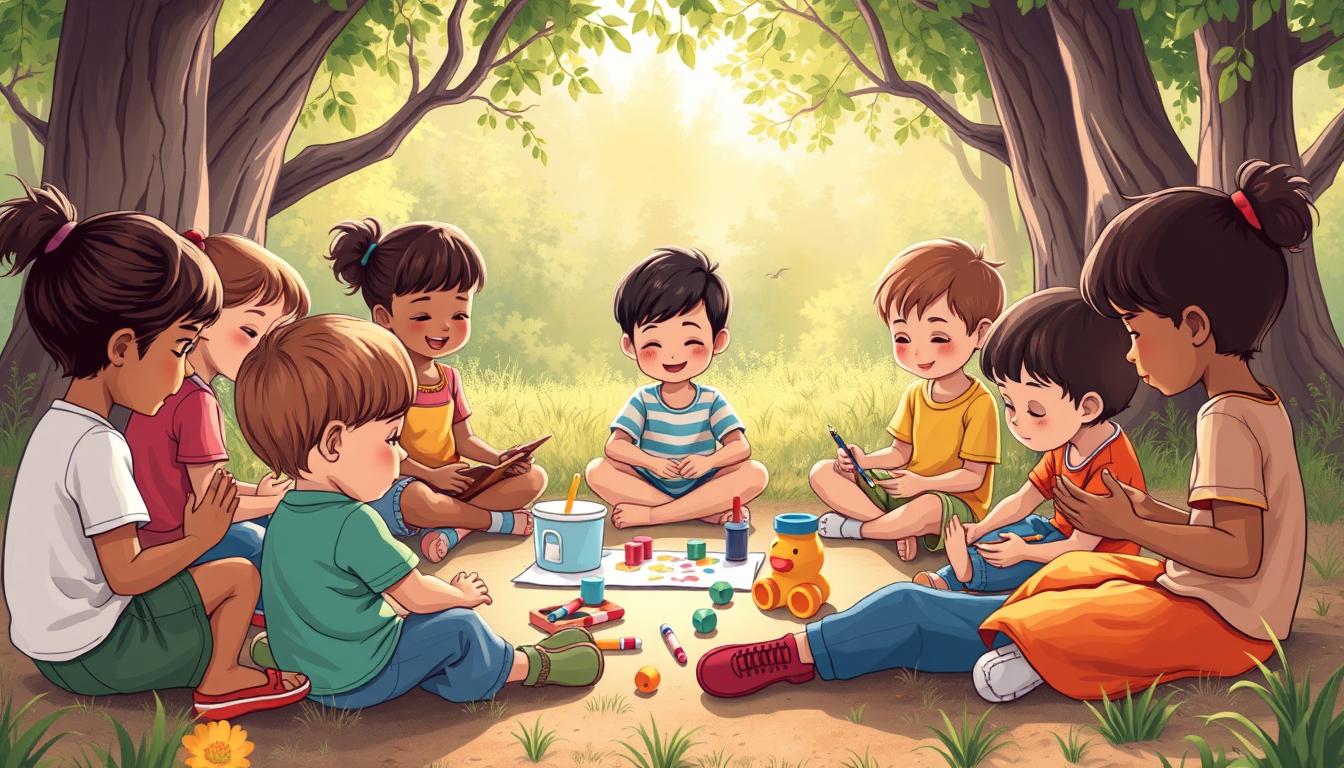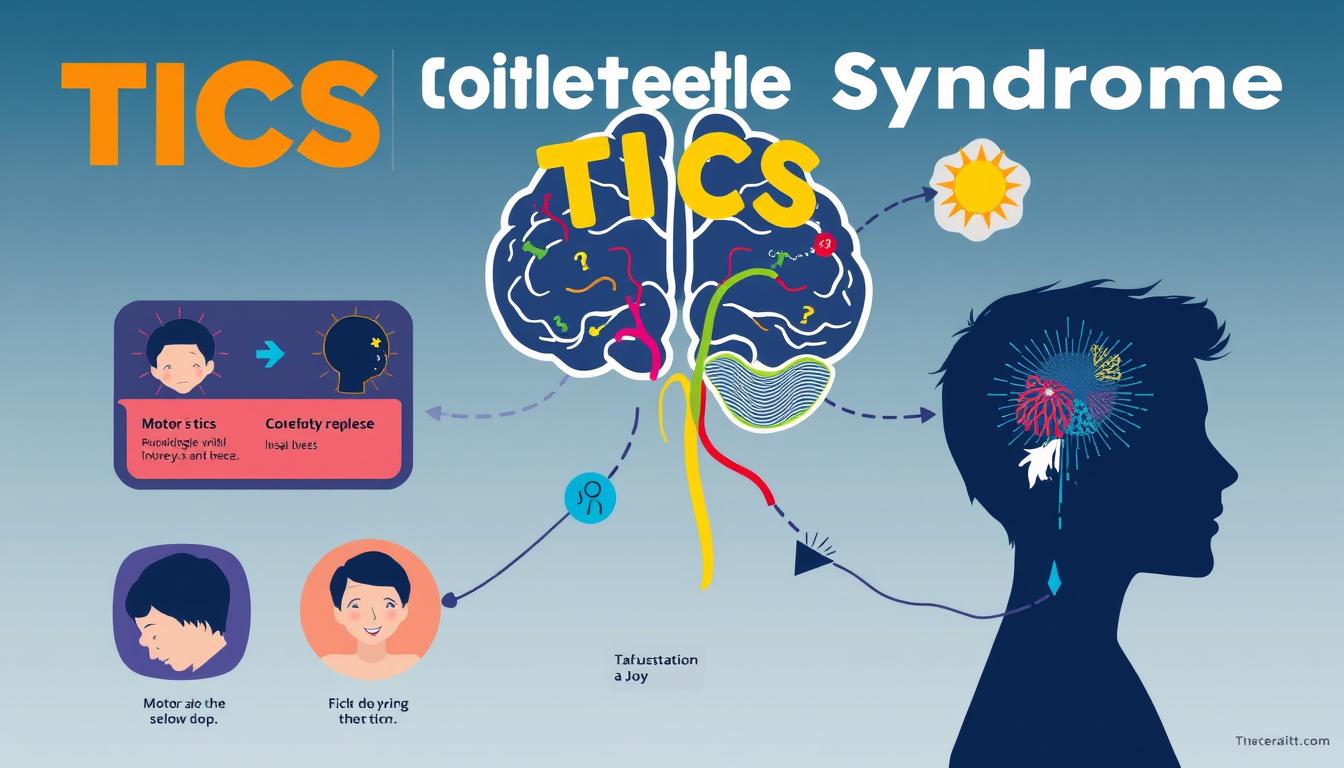As a parent, making sure your child’s mental health is good is very important. This guide will help you understand how to support your child’s mental health. You’ll learn about child psychology, how to spot early signs, and ways to help them cope.
By doing this, you can help your family deal with emotional growth. You’ll also create a safe space for your child’s mental health to thrive.
Key Takeaways
- Understand the key developmental stages and mental health milestones in children
- Recognize the role of brain development in emotional health and well-being
- Learn to identify common mental health challenges in different age groups
- Discover strategies to promote emotional intelligence and coping skills
- Create a supportive home environment that fosters mental wellness
Understanding Mental Health Fundamentals in Child Development
Helping children stay mentally healthy is key in child psychology. Knowing the important growth stages and how they affect emotional health helps parents support their kids. This support is crucial during their most formative years.
Key Developmental Stages and Mental Health Milestones
Children’s brains change a lot from birth to being a teenager. These changes affect their thinking, social skills, and feelings. Knowing these milestones helps parents spot and help with mental health issues early on.
- Infancy (0-2 years): This stage is about learning to control emotions, forming attachments, and bonding with others.
- Early Childhood (3-6 years): Kids start to know themselves, become more independent, and learn to express their feelings.
- Middle Childhood (7-11 years): At this age, kids get better at solving problems, making friends, and figuring out who they are.
- Adolescence (12-18 years): This stage is marked by big changes in the body and mind. It’s a time when mental health issues can become more common.
The Role of Brain Development in Emotional Health
The brain is very complex and changes a lot as a child grows. These changes are key to a child’s emotional health. As the brain grows, it helps kids manage their feelings, handle stress, and build strong relationships.
Knowing how brain development affects emotions helps parents spot and help with challenges. This support is vital for a child’s mental health.
Common Mental Health Challenges in Different Age Groups
While every child is different, some mental health issues are more common at certain ages. Knowing these can help parents stay alert and act quickly to help their child.
| Age Group | Common Mental Health Challenges |
|---|---|
| Infancy (0-2 years) | Attachment disorders, sleep problems, trouble regulating emotions |
| Early Childhood (3-6 years) | Feeling anxious when apart, acting out, trouble controlling emotions |
| Middle Childhood (7-11 years) | Anxiety, ADHD, learning issues, trouble making friends |
| Adolescence (12-18 years) | Depression, anxiety, using drugs, eating disorders, self-harm |
By grasping the basics of mental health in child development, parents can better support their child’s emotional growth. This support is essential for their well-being and success.
Mental Health Awareness in Children: Promoting Wellbeing and Early Intervention
As parents, our main goal is to make sure our kids are happy and healthy, including their mental health. Teaching them about mental health and starting early can really help. It shapes their growth and helps them deal with tough times later on.
It’s important to focus on mental health early on. This helps our kids handle life’s ups and downs better. We can teach them how to deal with stress, understand their feelings, and talk about what’s bothering them.
Spotting mental health issues early is key. If we see changes in how they act or feel, we can act fast. This helps lessen the problem and builds their strength and confidence.
- Introduce stress-relief activities like mindfulness or creative projects to help them manage feelings.
- Make sure they know they can talk about their mental health with you.
- Work with teachers and mental health experts to support your child’s well-being fully.
By focusing on mental health and starting early, we help our kids grow strong. This sets them up for a bright future.
Remember, taking care of our kids’ mental health is not just a duty. It’s an investment in their future.
Recognizing Warning Signs and Behavioral Changes
It’s key to spot mental health issues in kids early. As a parent, knowing physical and emotional signs is vital. Watch for changes in how they act with others and their school work. Also, notice any shifts in their sleep and eating habits.
Physical Symptoms vs. Emotional Indicators
Physical signs like headaches or tiredness might show a mental health problem. Emotional signs, like mood swings or pulling away, also need attention. Spotting these signs early can help your child do well.
Changes in Social Interactions and Academic Performance
See how your child acts with friends and family. If they start to pull away or have trouble with friends, it could be a sign. Also, if school grades drop, it might show they’re not feeling well emotionally.
Sleep and Eating Pattern Variations
Big changes in sleep or eating can mean a mental health issue. If your child sleeps too much or too little, or stops eating, it’s a warning. Watch these signs closely and act fast to keep your child healthy.
Knowing the signs of mental health problems helps you support your child. Early action and trauma-informed care are crucial. They help your child stay mentally healthy and learn to cope well.

Building Emotional Intelligence and Coping Skills
Raising emotionally intelligent kids is key for their happiness and strength. As a parent, you’re crucial in helping your child understand and manage their feelings. This helps them face life’s ups and downs with confidence and flexibility.
Teaching your child to recognize and name their emotions is important. Help them see when they feel happy, excited, frustrated, or sad. Encourage them to share these feelings in healthy ways, like through art or talking. This builds a strong base for managing their emotions and coping with life.
Building resilience is also vital. When your child faces tough times, show them how to bounce back. Use positive self-talk, deep breathing, and solving problems together. Celebrate their efforts and growth, not just the results. This helps them see challenges as chances to learn and grow.
- Teach your child to identify and name emotions
- Encourage healthy emotional expression through various outlets
- Develop resilience-building strategies, such as positive self-talk and problem-solving
- Foster a growth mindset and celebrate progress, not just outcomes
By focusing on emotional intelligence and teaching coping skills, you’re giving your child the tools to handle life’s challenges. This foundation will help them in school, with friends, and in their personal growth. It’s a key step towards their mental health and happiness for years to come.

Creating a Supportive Home Environment for Mental Wellness
As a parent, it’s key to create a caring home environment for your child’s mental health. Healthy routines, boundaries, and stress-relief activities help. This way, you support parental guidance, holistic wellbeing, and preventative mental health.
Establishing Healthy Routines and Boundaries
Having a regular schedule gives your child a sense of security. Stick to sleep, meal, and activity times to help their body clock. Also, set clear rules for screen time, homework, and social activities to keep them safe and secure.
Fostering Open Communication Channels
Make sure your family talks openly and honestly. Create a place where your child can share their feelings without fear. Listen well, understand their emotions, and solve problems together.
Implementing Stress-Relief Activities at Home
- Try mindfulness, like yoga or meditation, every day.
- Support creative activities, such as art or music, for self-expression.
- Have fun together with activities like game nights or outdoor trips.
By making your home a supportive place, you help your child deal with life’s challenges. This supports their parental guidance, holistic wellbeing, and preventative mental health.
| Routine and Boundary | Benefit |
|---|---|
| Consistent sleep schedule | Improved sleep quality and mood regulation |
| Limit on screen time | Reduced risk of attention and focus issues |
| Designated family time | Stronger emotional connection and support |
When and How to Seek Professional Help
As a parent, knowing when your child needs mental health help is key. Managing daily stresses is normal for kids. But, some changes might mean they need professional help.
Schools often have mental health services like counseling and therapy. These are great for families looking for help early on.
If your child’s mood, sleep, school work, or social life changes a lot, it’s time to seek help. Doctors, child psychologists, and therapists can find the cause and create a plan.
Getting help might feel scary, but it’s doable. Start by talking to your child’s school counselor or doctor. They can give you names of professionals and resources in your area.
- Learn about different mental health experts, like psychiatrists and therapists, and what they do.
- Look into school programs that focus on mental health and trauma care.
- Be ready to speak up for your child, ask questions, and join in their treatment.
Looking for professional help shows you care, not weakness. With the right support, your child can grow strong and handle life’s ups and downs.
By tackling mental health early, you help your child face life’s challenges. This sets them up for a healthy future.
| Mental Health Professional | Specialization | Typical Services Provided |
|---|---|---|
| Psychiatrist | Diagnosing and treating mental health disorders, including prescribing medication. | Comprehensive psychiatric evaluation, medication management, and in-depth therapy. |
| Psychologist | Evaluating, diagnosing, and treating mental health conditions through therapy and counseling. | Psychological assessment, individual and family therapy, and behavioral interventions. |
| Licensed Therapist (e.g., LCSW, LPC, LMFT) | Providing counseling and therapy services for a wide range of mental health issues. | Individual, group, and family therapy, using various therapeutic approaches. |
Conclusion
Understanding mental health in kids is key for parents. Knowing how kids grow and spotting early signs helps a lot. It lets you support your child’s overall health.
Teaching emotional smarts, creating a caring home, and getting help when needed are important steps. These actions help your child deal with mental health issues.
Your part in promoting wellbeing and early intervention is huge. Your parental guidance and dedication to your child’s holistic wellbeing help them face mental health challenges. This builds a strong base for a happy and strong future.
Keep learning, talk openly, and be ready to get help when it’s needed. By focusing on your child’s mental health, you’re not just helping them now. You’re also setting them up for a life of emotional and mental stability.



